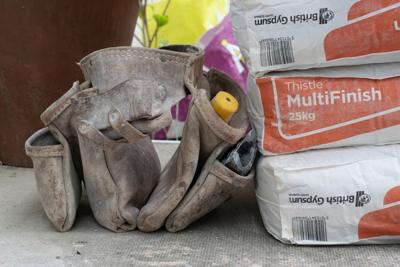
When it comes to renovating or building a house, plastering the walls becomes a task. It does not provide insulation, but enhances the overall appearance of the walls. However, homeowners often face a dilemma on whether they should attempt plastering themselves or hire plasterers. This blog post aims to guide you in making a decision about which option, DIY or professional plastering, suits your home the best.
Understanding Plastering
Before diving into the debate of DIY versus plastering, let's first grasp what this process entails. Plastering involves creating a surface on exterior walls using materials such as hydrated lime, sand, and water mixed with drywall compounds or cementitious substances.
Reasons to Consider Hiring Professional Plasterers
Here are some advantages of hiring skilled plasterers in Wellington for your project:
Expertise: Professional plasterers bring valuable experience and expertise to their work, ensuring top-notch craftsmanship.
Superior Finish: Professionals have access to specialized tools that facilitate achieving flawless finishes.
Time Efficiency: A team of professionals can complete the job swiftly and efficiently, allowing you more time for tasks.
Attention to Detail: Professionals pay attention to every small detail, from prepping the surface by sandblasting old paint and repairing damages to ensuring clean lines and smooth surfaces.
Safety: Contractors possess extensive knowledge of handling materials safely, reducing potential health risks associated with certain chemicals used in traditional plaster mixes.
Insurance Coverage: In case any unforeseen issues arise during the project, such as property damage, professional contractors carry liability insurance to cover any costs.
Risks of DIY Plastering
On the other hand, there are several cons associated with attempting DIY plastering:
Lack of Experience & Expertise: Unless you have a thorough knowledge of this craftwork, you're likely to encounter difficulties that could complicate and prolong the process.
Quality Control Issues: DIY plasterers may not have access to the tools required for achieving high-quality finishes. This can result in execution with bumps and waves.
Time-Consuming: Learning how to properly plaster can be time-consuming. Mistakes along the way can further extend the renovation timeline.
Cost Implications: DIYers often underestimate the costs associated with purchasing materials for plastering. This can lead to expenses.
How To Go About DIY Plastering Safely
If you do decide to take on the task yourself, here are some tips for plastering:
Gather Your Tools and Materials: Before you start, make sure you have all the supplies, such as sandpaper, trowels, paint brushes, and the right type of drywall compound or cementitious plaster mix for your project.
Prioritize Safety for Yourself and Your Home: Wear safety goggles, masks, and gloves to protect your skin from any substances found in traditional plaster mixtures.
Maintain a Clean Work Area: To prevent having to clean up the mess all at once, make it a habit to clean up as you go along. By starting from day one, you also ensure that no debris gets mixed into the materials, making the project cleanup hassle-free.
Follow Correct Plaster Mixing Procedures: One mistake made by beginners is using estimated measurements or inconsistent ratios when mixing their own plasters. This can lead to adhesion and short-term cost issues, followed by failure that requires rework and additional long-term investment.
Remember these tips as you embark on your DIY plastering project.
Conclusion
While it is possible to undertake this task without encountering any danger, the potential risks associated with it outweigh the benefits if not handled carefully by someone experienced in the trade. A skilled professional brings years of expertise and utilizes the right equipment to ensure that every aspect is addressed and completed to the highest standards within a reasonable timeframe. Attempting DIY plastering may result in short-term cost savings, but considering the complexities involved, preparation is crucial, and a lack of it could lead to frustration and additional expenses for time and materials. We hope this article has provided you with information that will assist you in making a decision accordingly!


(0) comments
We welcome your comments
Log In
Post a comment as Guest
Keep it Clean. Please avoid obscene, vulgar, lewd, racist or sexually-oriented language.
PLEASE TURN OFF YOUR CAPS LOCK.
Don't Threaten. Threats of harming another person will not be tolerated.
Be Truthful. Don't knowingly lie about anyone or anything.
Be Nice. No racism, sexism or any sort of -ism that is degrading to another person.
Be Proactive. Use the 'Report' link on each comment to let us know of abusive posts.
Share with Us. We'd love to hear eyewitness accounts, the history behind an article.